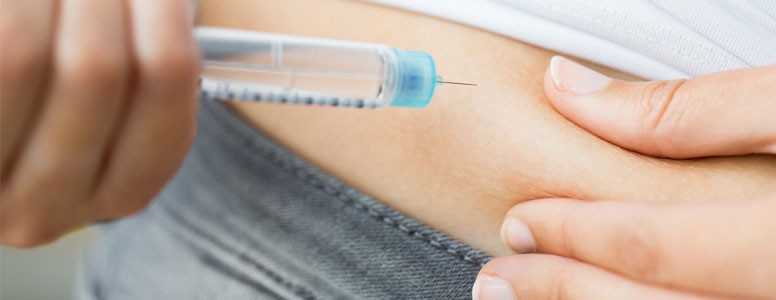The number of people with type 2 diabetes who receive insulin is expected to increase by more than 20% by 2030, a report suggests.
People with type 2 diabetes may be treated with insulin if they have uncontrolled blood glucose levels, and have not been able to lower their glucose levels using metformin or other medication.
The new report on estimated global insulin use, published in The Lancet, suggests that an estimated 79 million people with type 2 diabetes will need insulin by 2030, an increase of 20% from 2018.
However, while this report indicates an expected increase in worldwide insulin use, various research is showing how people with type 2 diabetes can come off insulin by eating a healthy, real-food diet.
The one-year health outcomes from our Low Carb Program were published earlier this year which showed that reduced dependency on medications, including insulin, were among the programme’s benefits.
More than 40% of people with type 2 diabetes who start the Low Carb Program on medication eliminate a drug from their treatment plan by the one-year mark.
Projection
Stanford University researchers developed a microsimulation of type 2 diabetes management from 2018-2030 across 221 countries using data from the International Diabetes Federation. They then analysed 14 studies to project more than 60% of the global type 2 diabetes population for HbA1c, treatment and weight data. The amount of people using insulin was part of this projection.
The US study team believe this increase could lead to an insulin shortage for people with type 2 diabetes unless access to the hormone is significantly improved.
“These estimates suggest that current levels of insulin access are highly inadequate compared to projected need, particularly in Africa and Asia, and more efforts should be devoted to overcoming this looming health challenge,” said lead author Dr Sanjay Basu.
Editor’s note: Eating a healthy diet low in carbohydrate, sugar and processed food can help to lower blood glucose levels, and people with type 2 diabetes have been able to put the condition into remissio, coming off all their diabetes medication, by following a healthy eating plan.
What's new on the forum? ⭐️
Get our free newsletters
Stay up to date with the latest news, research and breakthroughs.






